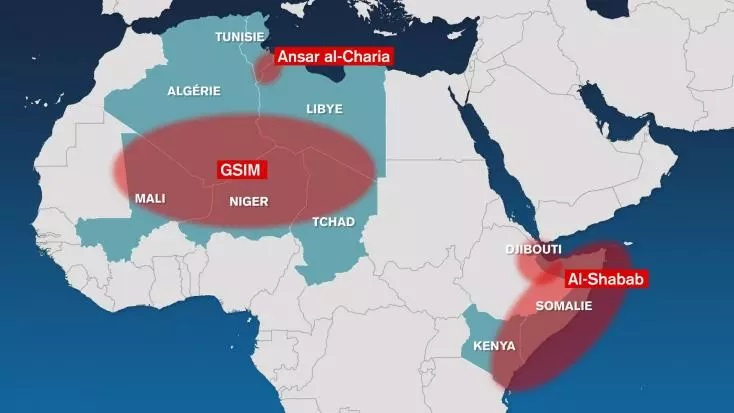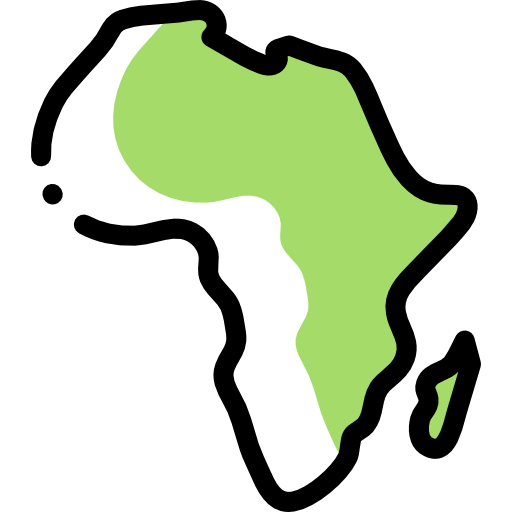AFRICA AND JIHADIST INSURRECTIONS
Since the end of the 20th century, Africa has been massively affected by jihadist insurrections. In the 1990s, Algeria descended into a civil war. From 2003, the unrest began to spread to the Sahel. In 2006, Islamists seized Mogadishu, the capital of Somalia. In 2009, an insurrection broke out in northeastern Nigeria. In 2012, northern Mali came under the control of groups linked to al-Qaeda.

The main Salafist jihadist groups in Africa are the Al-Shabab movement (operating in Somalia and Kenya), Boko Haram (operating in Nigeria, Niger, Cameroon, and Chad), AQIM (operating in Algeria, Mali, Mauritania, Niger, Tunisia, and Libya), and various other Sahelian groups linked to al-Qaeda (Ansar Dine, MUJAO, The Signatories in Blood, Al-Mourabitoune, Ansarul Islam, and the Group for the Support of Islam and Muslims). The Islamic State also appeared on the continent in the mid-2010s, notably with the rallying of part of Boko Haram, which formed the Islamic State in West Africa, the rallying of part of al-Mourabitoune, which formed the Islamic State in the Greater Sahara, and the rallies of Majilis Choura Chabab al-Islam in Libya, Ansar Baït al-Maqdis in Egypt, Jund al-Khilafah in Algeria, and some other groups in Tunisia, Somalia, and Mozambique.
The rise of jihadist movements and the multiplication of armed conflicts on the continent have led to several international interventions, notably those of France (in the Sahel with Operation Serval and then Barkhane) and the United States (Operation Enduring Freedom - Trans Sahara). These interventions aim to support allied governments but also to weaken jihadist hotbeds likely to constitute bases for terrorist attacks against Europe.
According to the Global Terrorism Index, between 2014 and 2015, Nigeria was the second country in the world after Iraq that was most affected by Islamist terrorist attacks, in terms of the number of deaths. Sub-Saharan Africa also holds the grim record for the highest average number of deaths per terrorist act (6.7 deaths), and Boko Haram was the deadliest terrorist group on the planet in 2014.
For more information:
https://fr.wikipedia.org/wiki/Portail:Afrique
https://en.wikipedia.org/wiki/Africa
https://journals.openedition.org/etudesafricaines/
https://etudes-africaines.cnrs.fr/
https://www.afdb.org/fr/documents-publications/economic-perspectives-en-afrique-2024





